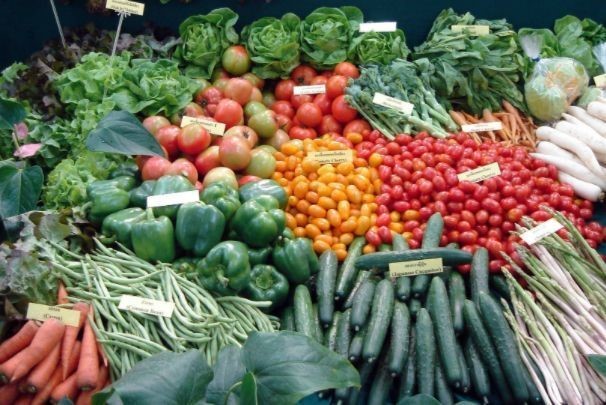
KUALA LUMPUR: The government has of late been focusing on addressing food security issues by zeroing in on efforts to boost agricultural production and reduce the nation’s dependence on food imports.
Various policies and initiatives - not only involving the federal government but also agencies such as government-linked companies (GLCs) and state government and private entities - have been mobilised to ensure that food security risks do not escalate further.
Commenting on this, Universiti Teknologi MARA academic Dr Ariff Azly Muhamed said the government is seen to be taking the right approach by rallying the expertise, experience and capacities of the relevant agencies to sustain food security.
The Department of Technology and Supply Chain Management, Faculty of Business and Management senior lecturer said the collaboration and involvement of various bodies at the grassroots level will not only address food security issues but also ensure the availability of adequate food for the people.
Recently, Prime Minister Datuk Seri Ismail Sabri Yaakob said the Economic Action Council decided that public-private collaboration would be intensified to tackle the nation’s food security issues.
"The government’s move to involve the relevant agencies is highly appropriate with regard to finding a comprehensive solution that focuses on the problem of supply and demand which, now, is seen to be unbalanced. The effects of this imbalance will hamper consumers’ ability to obtain food,” Ariff Azly told Bernama.
The government, meanwhile, is also taking the necessary steps to increase the land area for agricultural use as a long-term strategic measure to bolster food security.
This move will also indirectly produce more agro-based entrepreneurs as well as boost the nation’s agricultural output.
"Logically, gazetting more agricultural land as reserve land via Section 62 of the National Land Code (NLC) and leasing it to GLCs for 10 to 21 years will give state governments more power to lease the land to agro-based entrepreneurs," said Ariff Azly.
"It is hoped that the synergy between the federal government and state governments can be made a starting point for the reduction of our nation’s reliance on food imports," he added.
Ariff Azly said that current statistics showed that 30 to 40% of Malaysia’s rice needs are met by imports.
Harnessing the synergy between the federal and state governments with regard to the use of land for agricultural purposes was among the initiatives agreed on during a recent meeting attended by Cabinet ministers, menteri besar and chief ministers.
Ariff Azly also said that synergies between the relevant agencies and experts, including institutions of higher learning, can also be exploited through various comprehensive research efforts on, among others, use of technology and finding the best approach to boosting the production of food resources.
He said the government can, through the Rural Development Ministry, collaborate with academics and researchers from local universities by carrying out research on, for instance, the production of animal feed from local resources.
In addition, the government must also make use of the nation’s expertise to maximise food output as practised by Japan where the government works closely with the nation’s research institutions and universities.
"In Japan, such collaborations have helped to maximise yields in the nation’s agricultural sector and reduced its dependence on food imports... (the same steps) must also be taken by our government to ensure the long-term sustainability of our food security,” he added.
Deputy dean of the Graduate School of Business, Universiti Kebangsaan Malaysia, Associate Prof Dr Mohd Helmi Ali believes that when agricultural industry players work in coordination with the government, it will lead to a win-win impact that will ultimately resolve food security issues.
He said the integration of information among the stakeholders can, indirectly, change a supply chain that has long been dominated by certain entities as well as open new avenues in the food industry that are centred on food security and not on profits alone.
"Food production practices that are profit-oriented and done in silos are more likely to benefit those who are more proactive and highly innovative.
"The majority of our food industry players comprise small- and medium-sized companies run by farmers with limited capacities including finances. Therefore, GLCs and GLICs (government-linked investment companies), which have the necessary resources, must come forward to upgrade and strengthen the small players to enable them to optimise their yields,” he said.
The Prime Minister had also stressed on efforts to expand the agro-food ecosystem with the supply chain led by GLCs, GLICs and government agencies.
He said the coordination among these agencies is to ensure that the quality, quantity and food productions were at the optimum levels, hence ensuring continuous supply.
Source: https://www.thestar.com.my/news/nation/2022/07/06/govt-committed-to-addressing-food-security-issues

